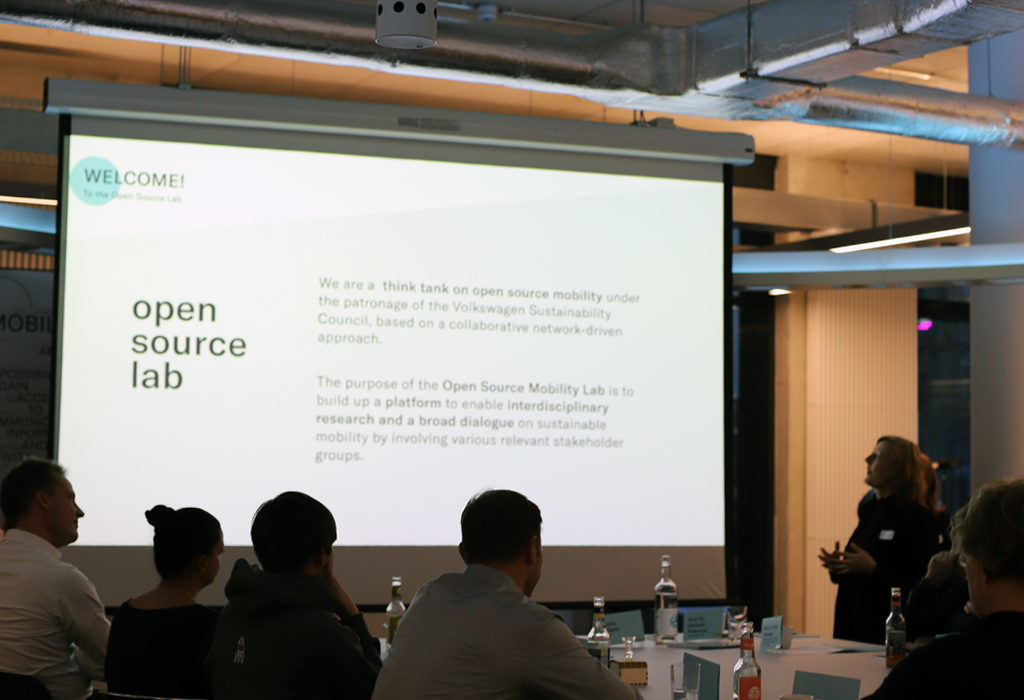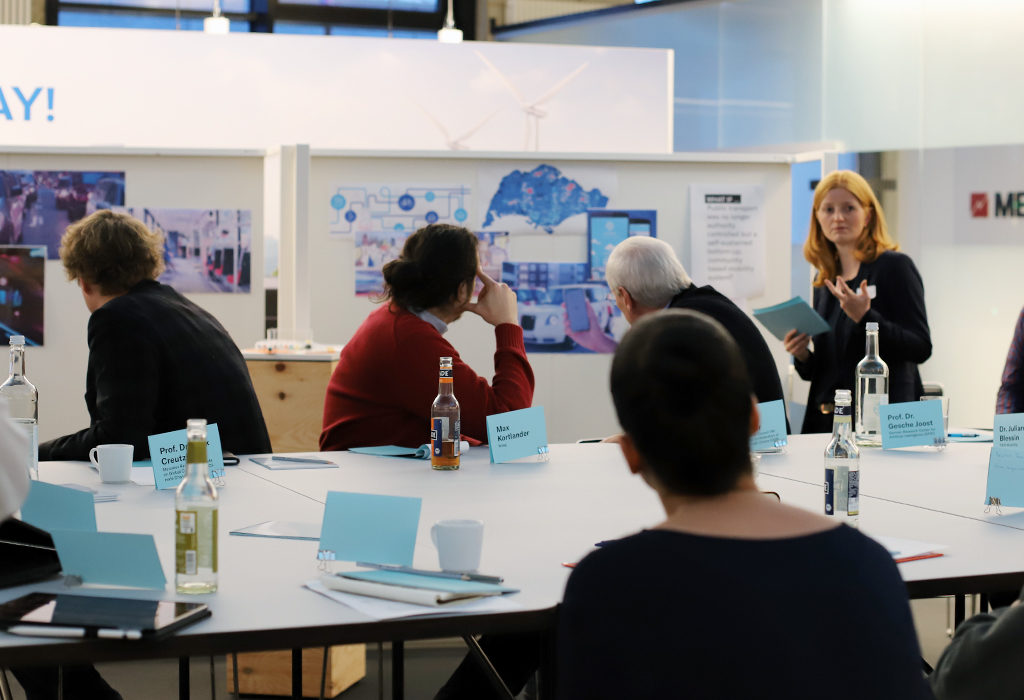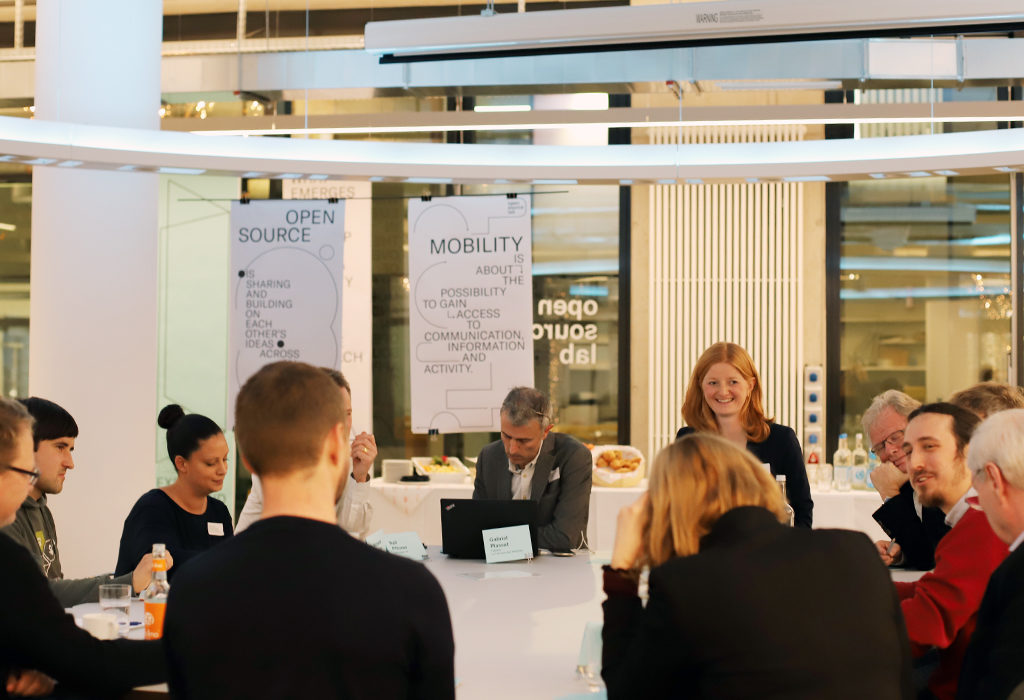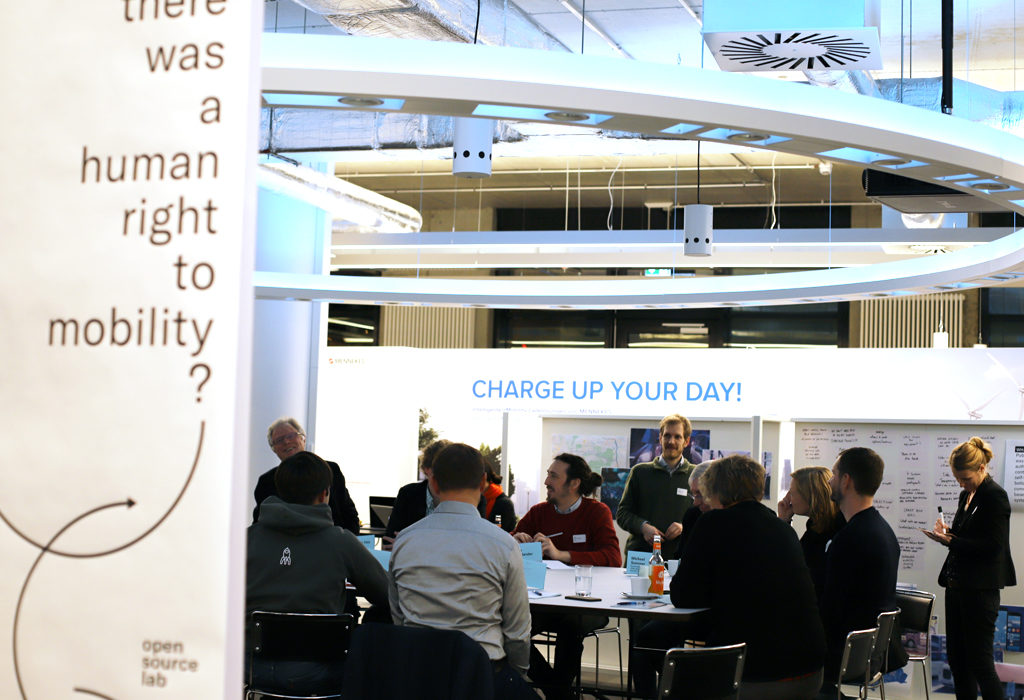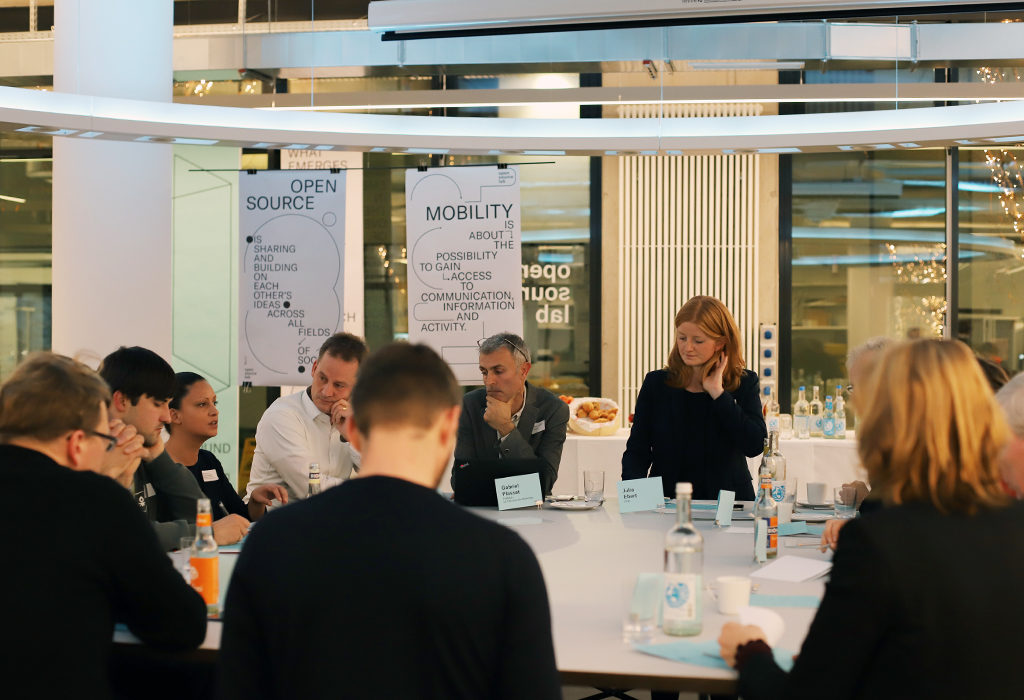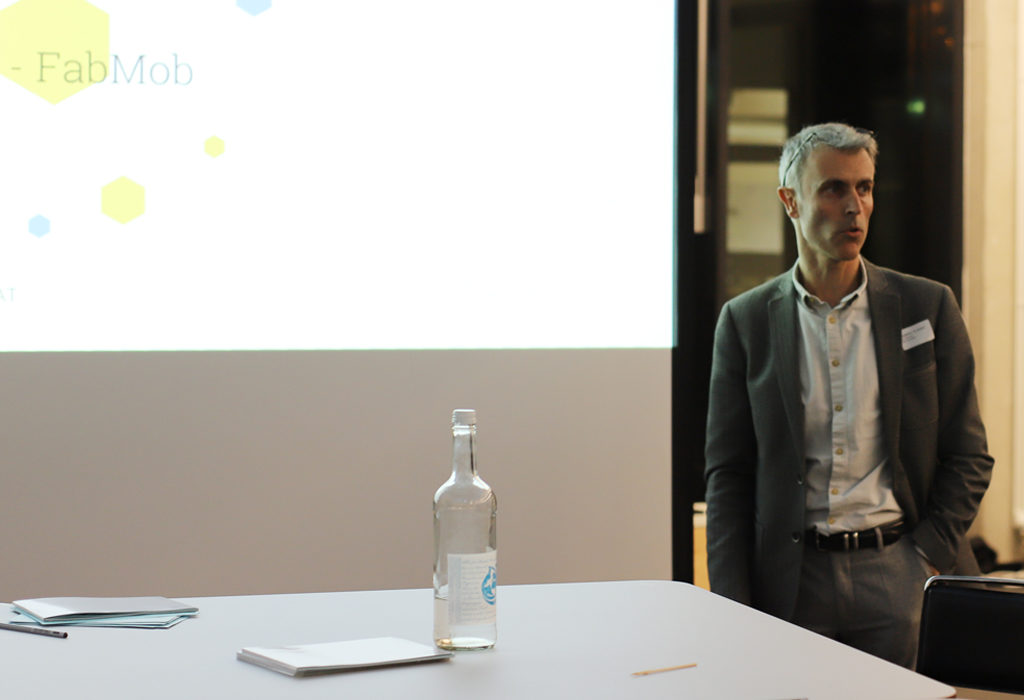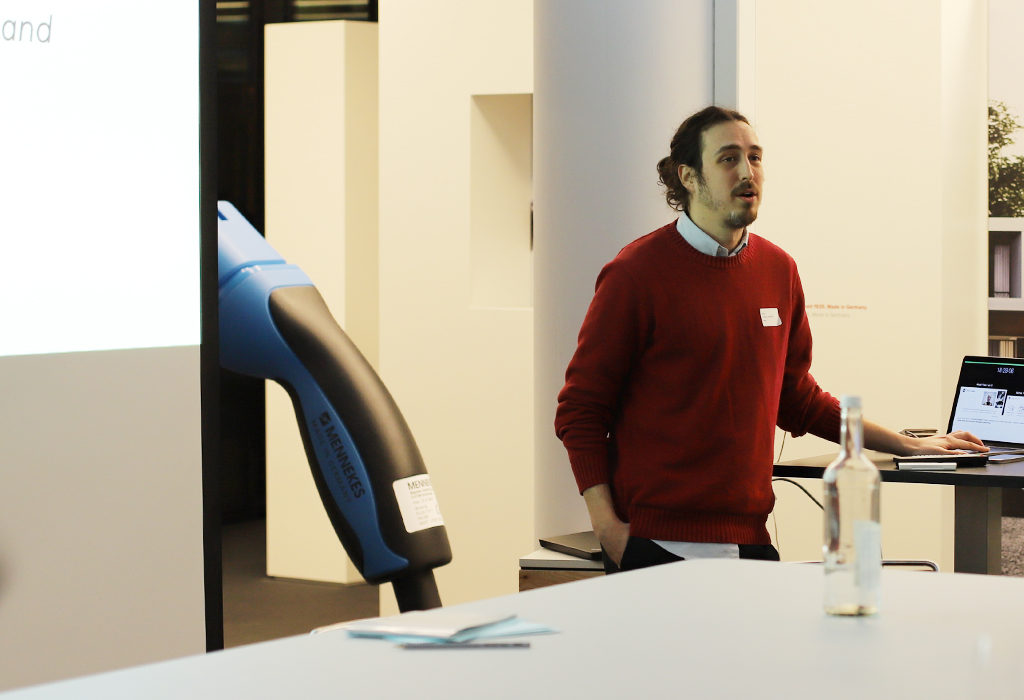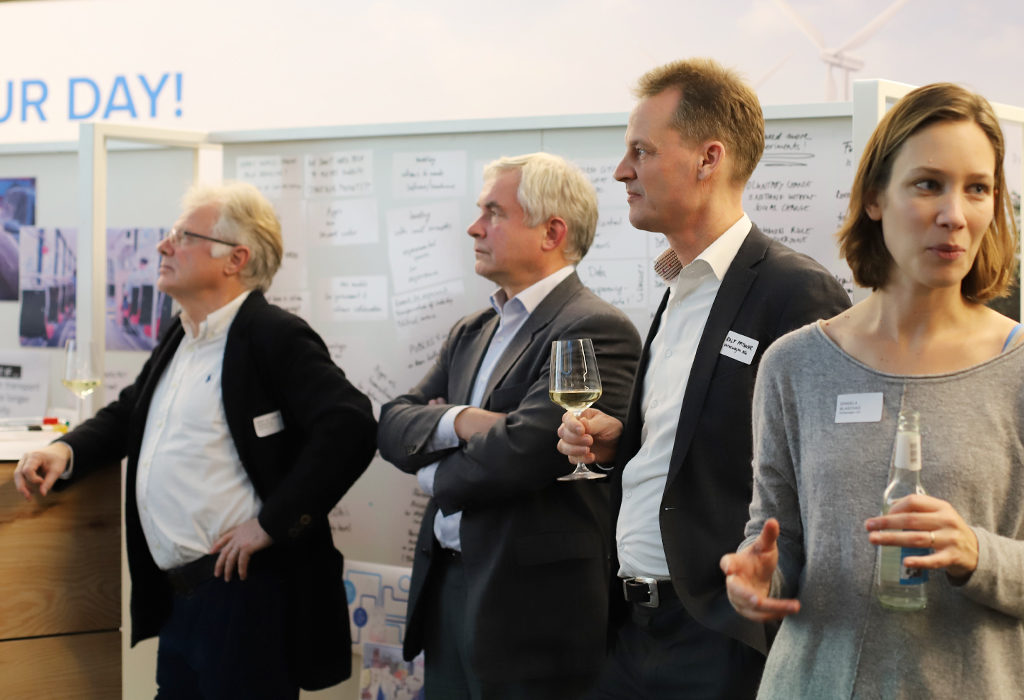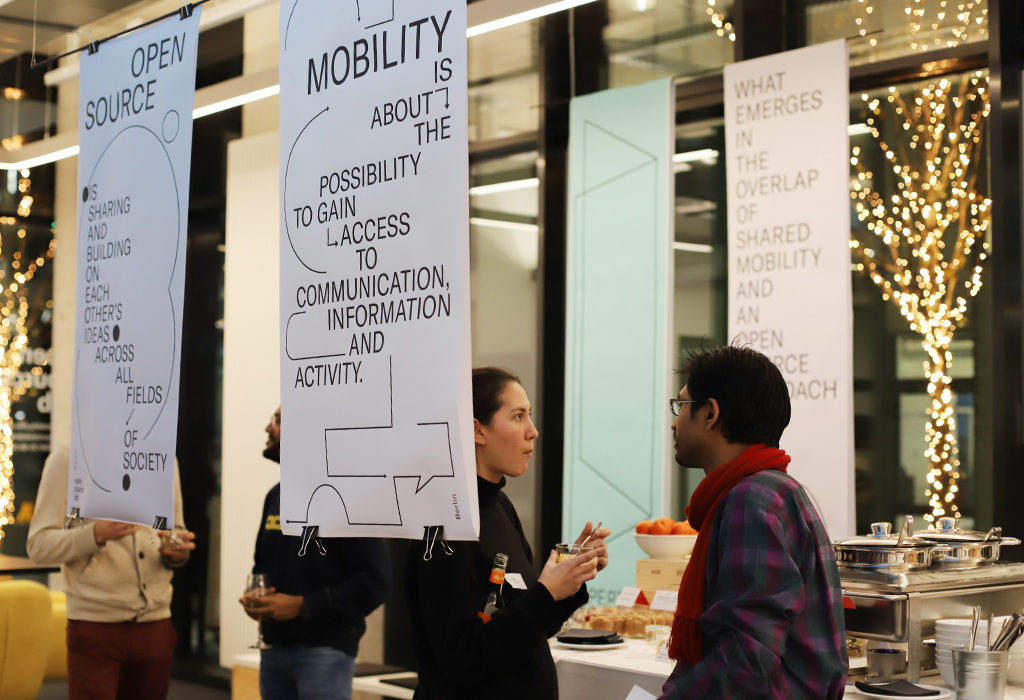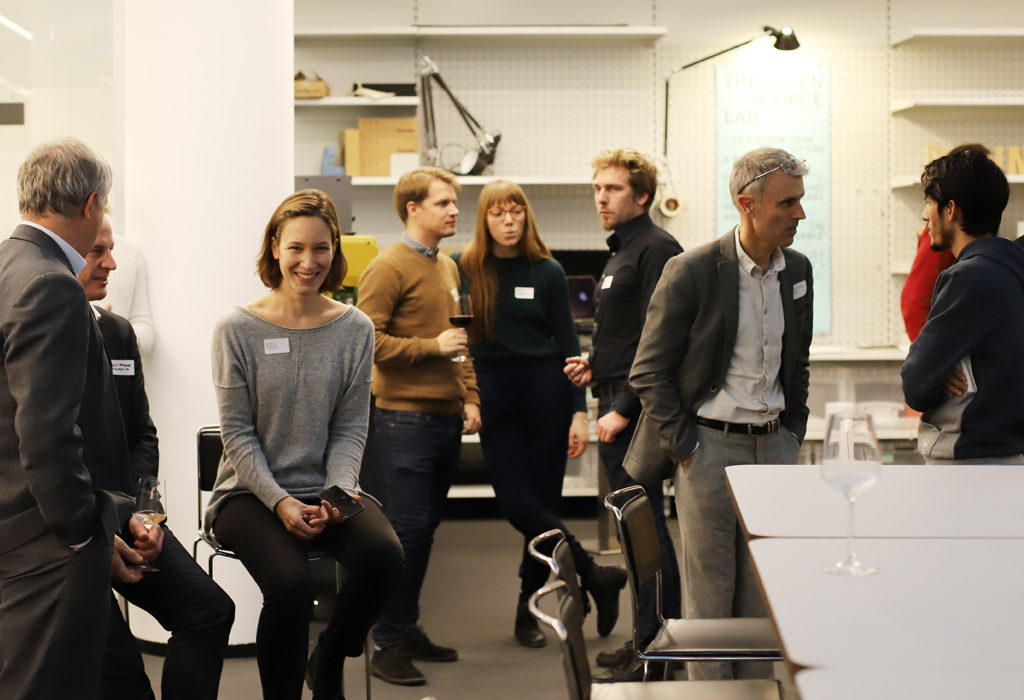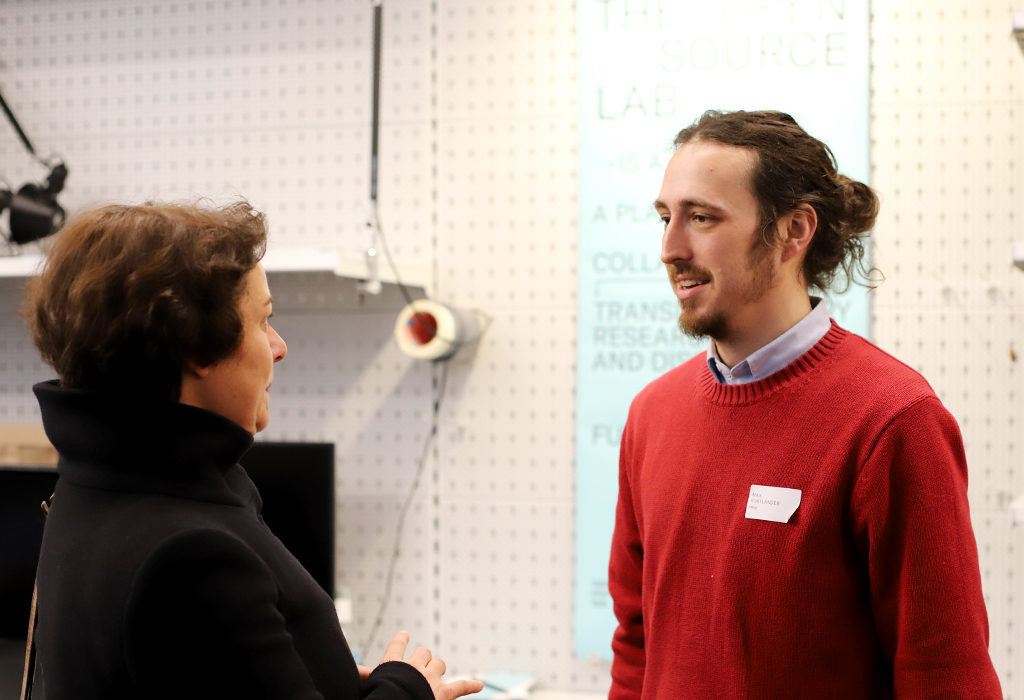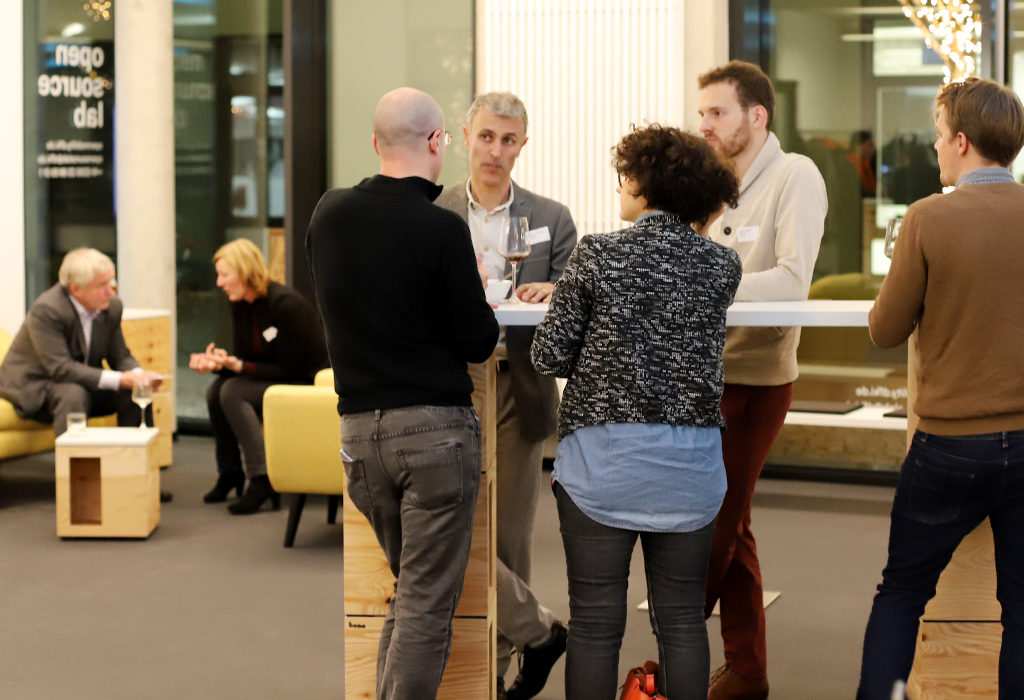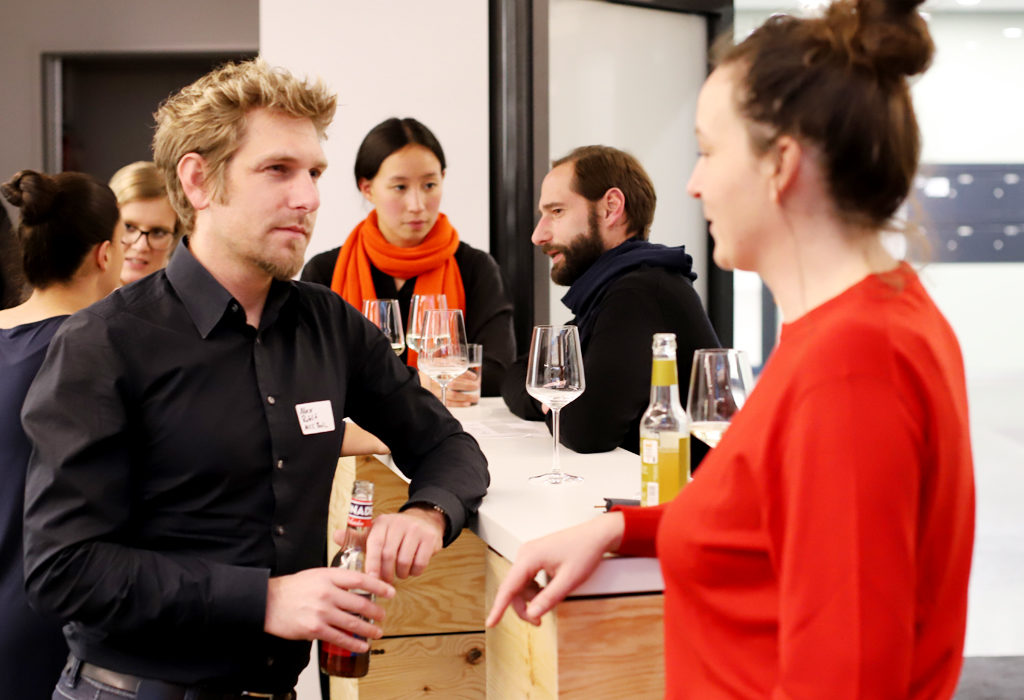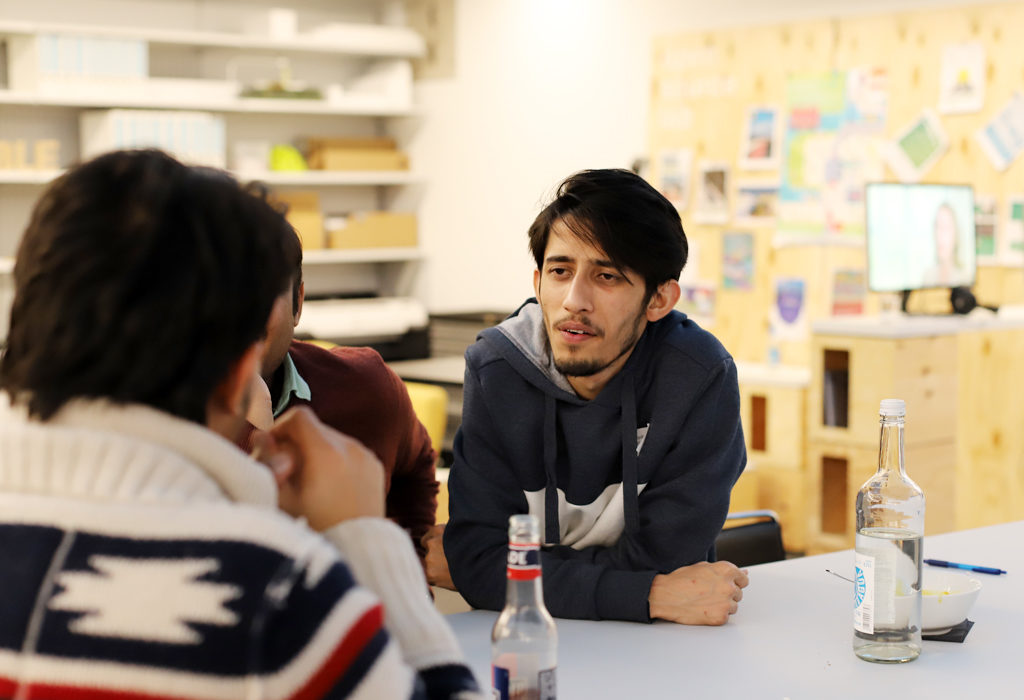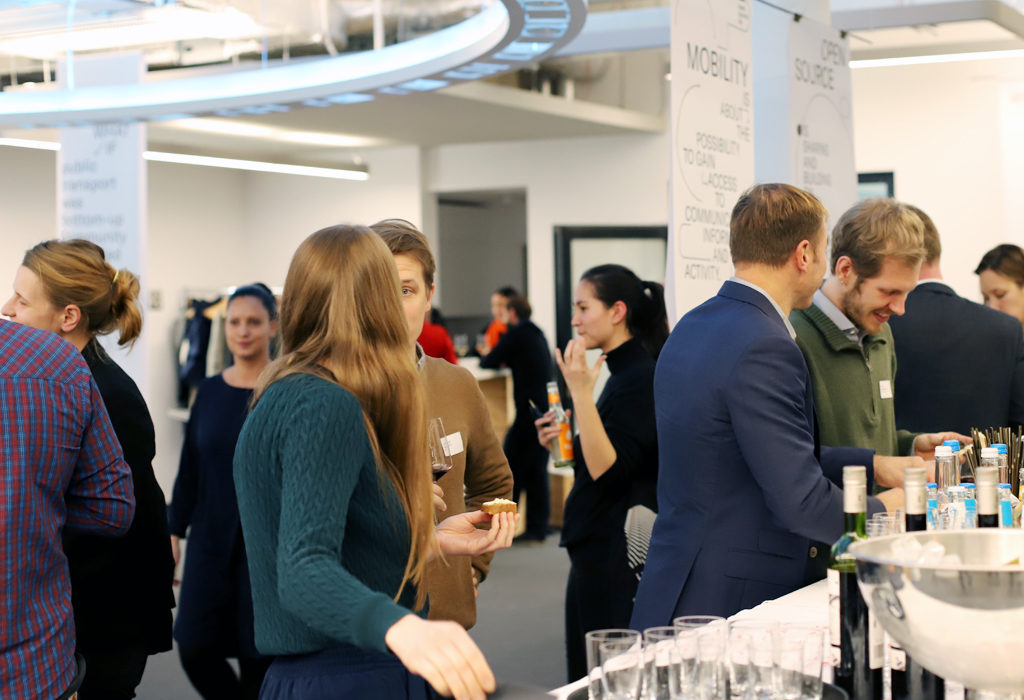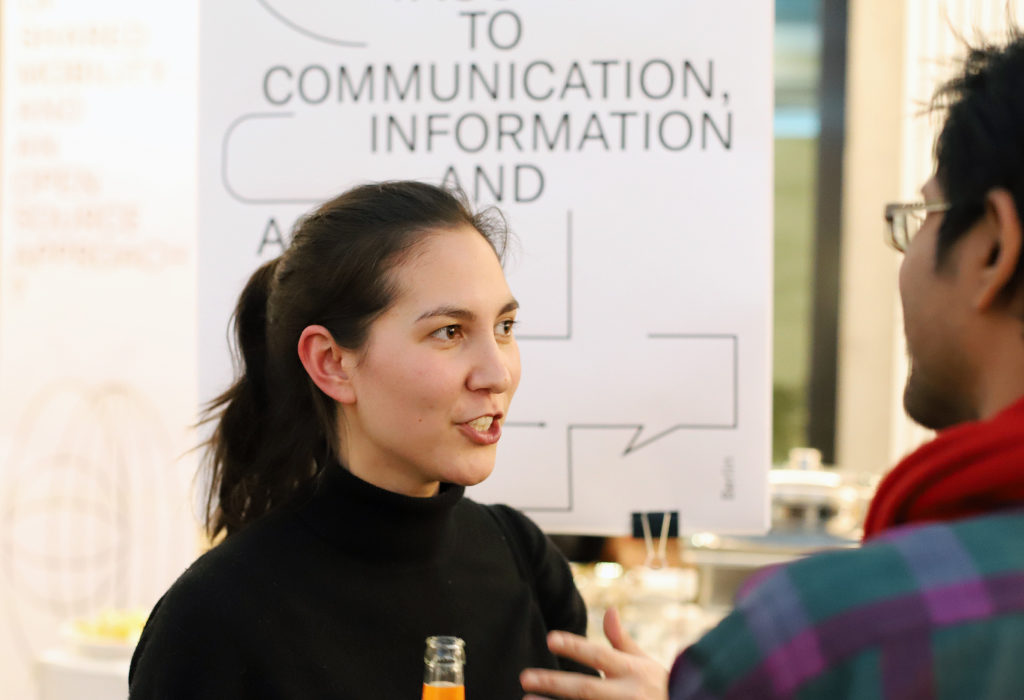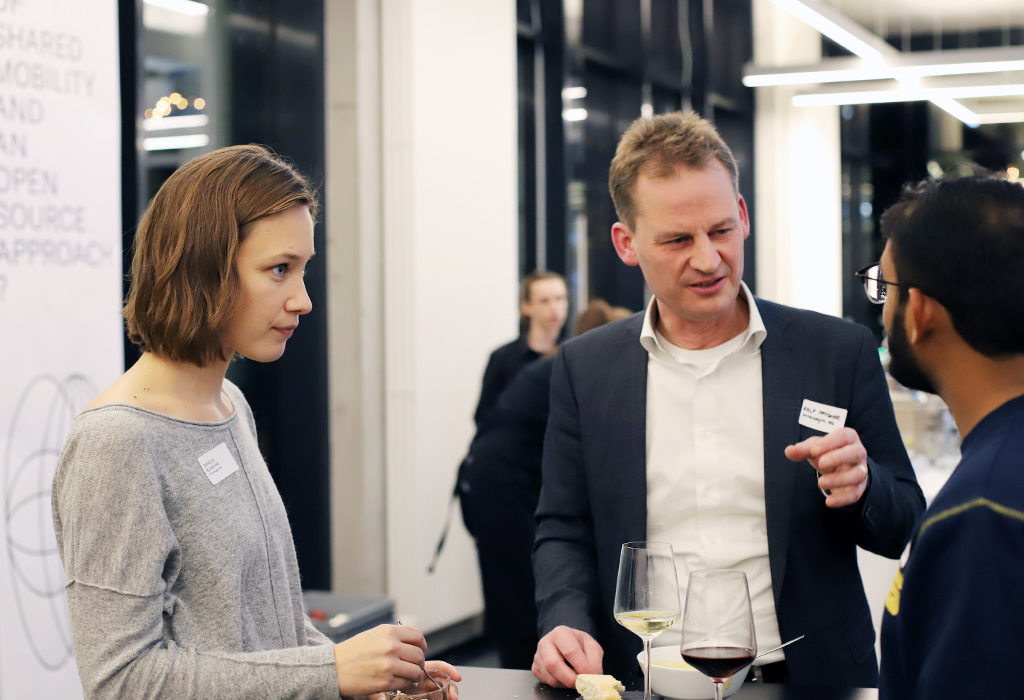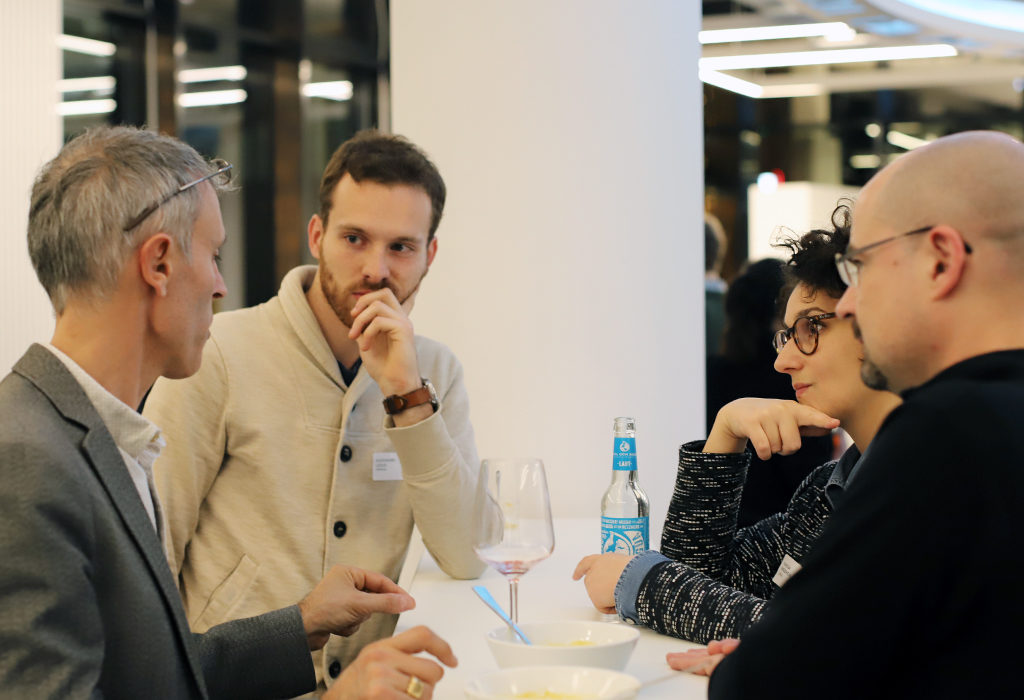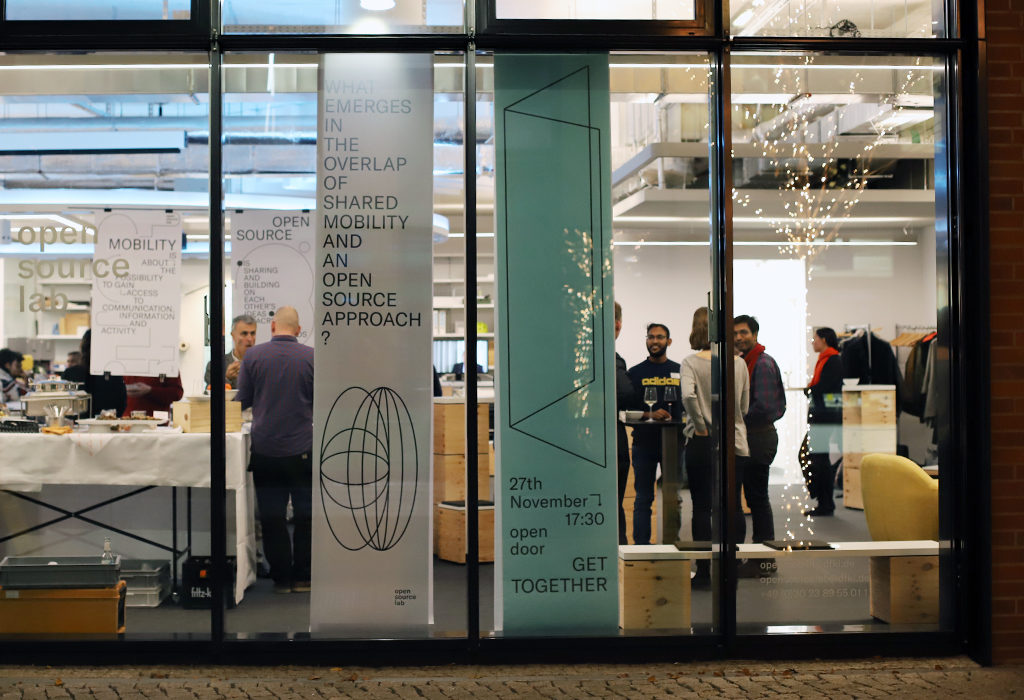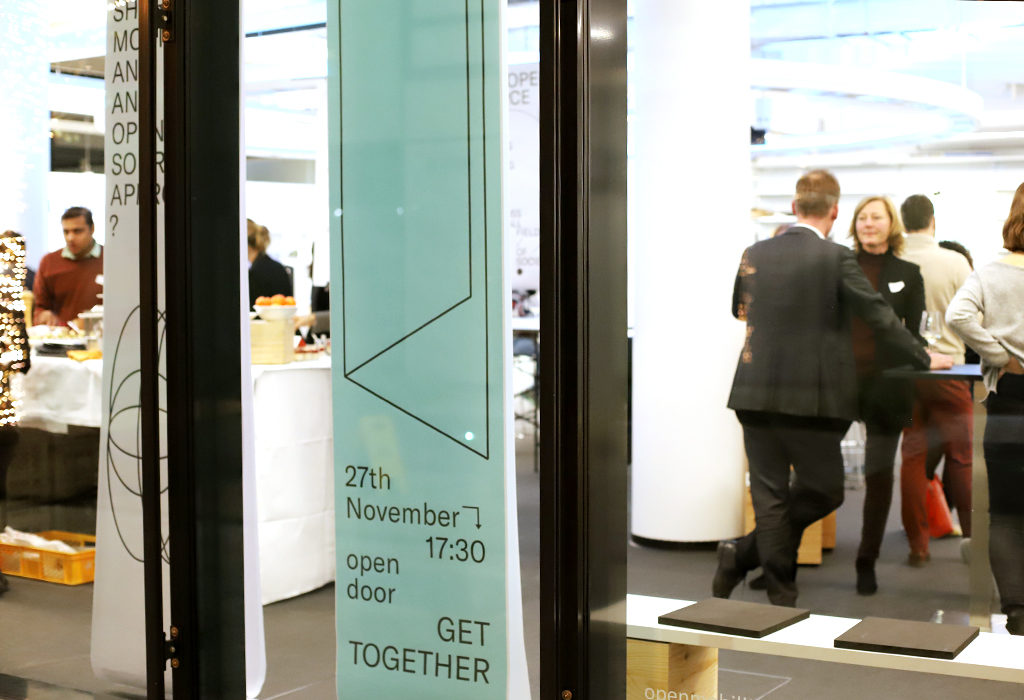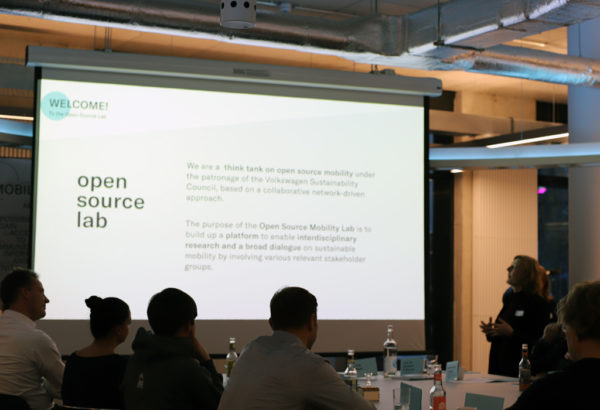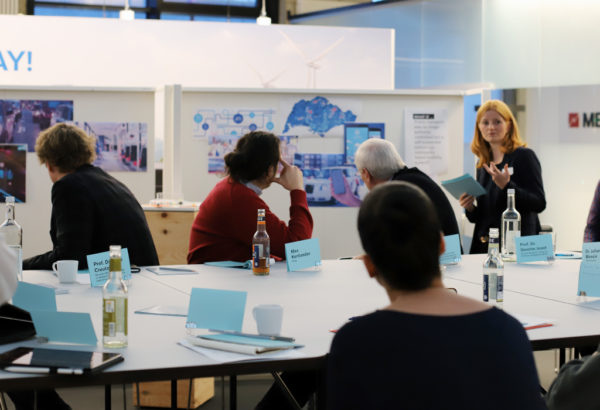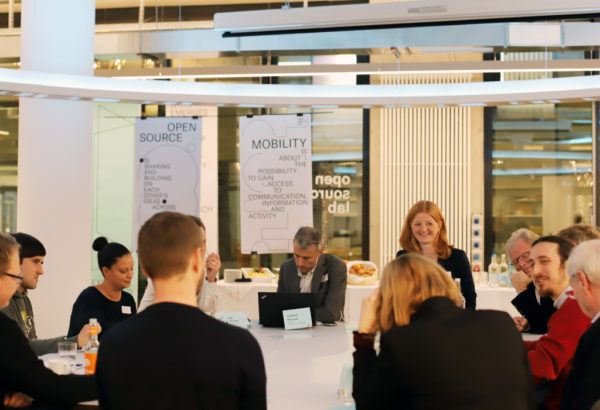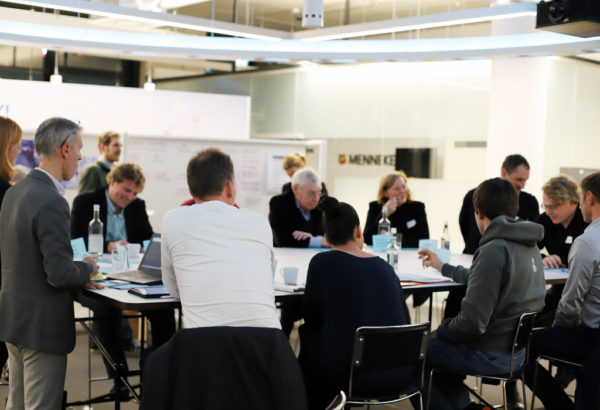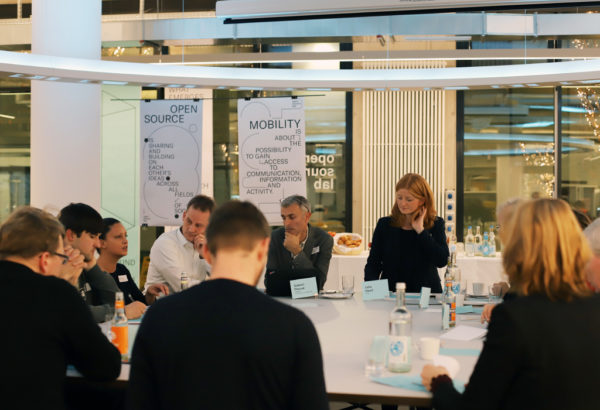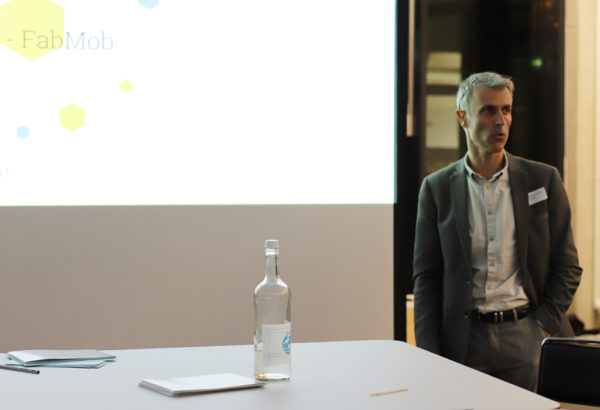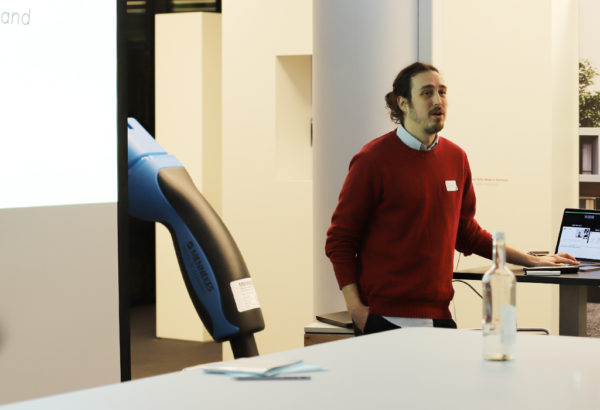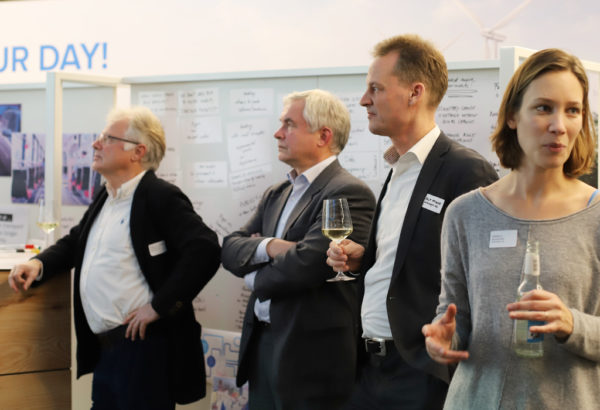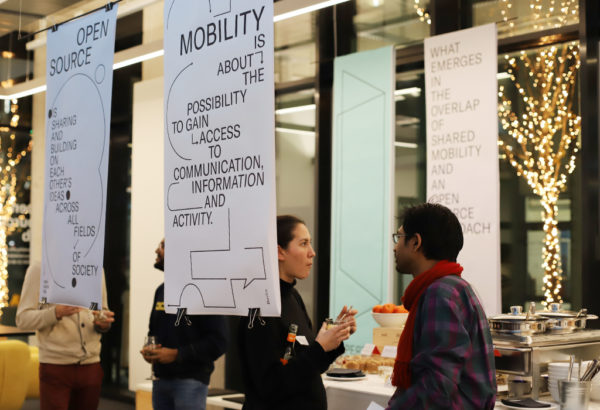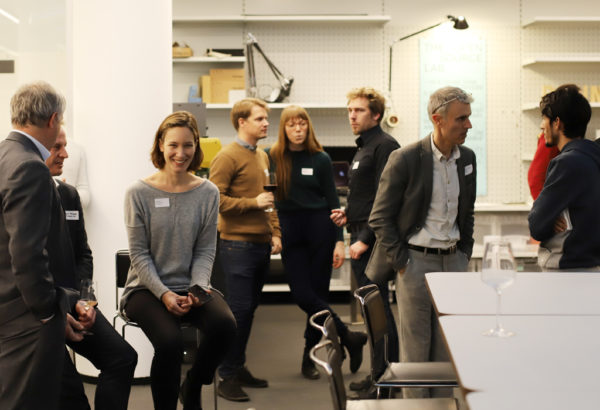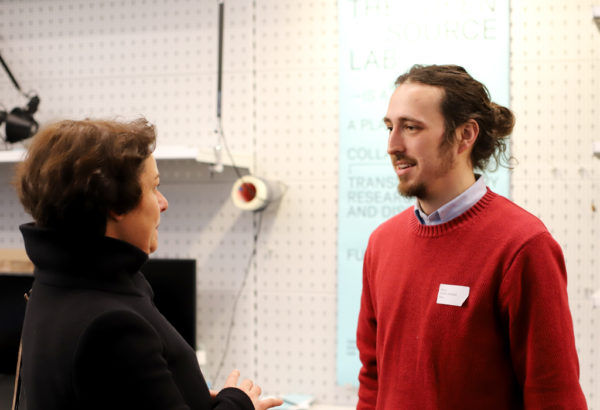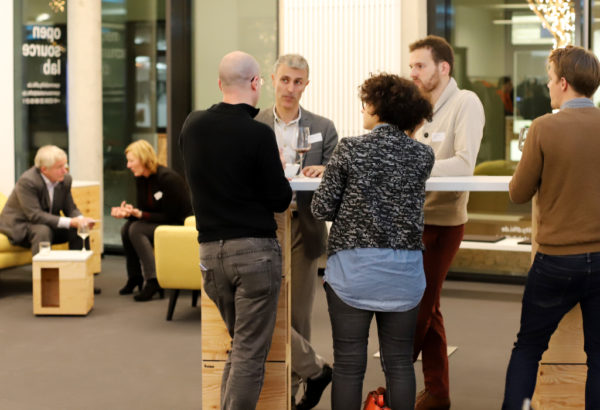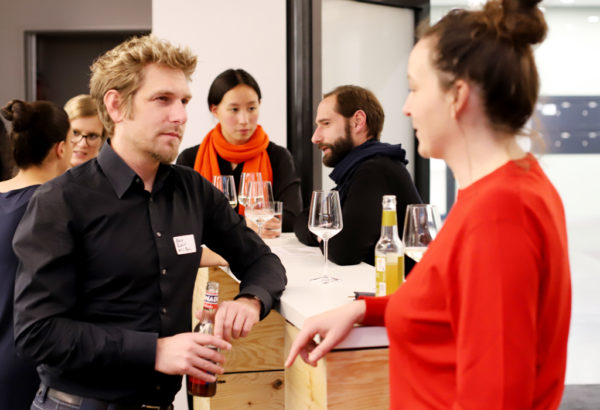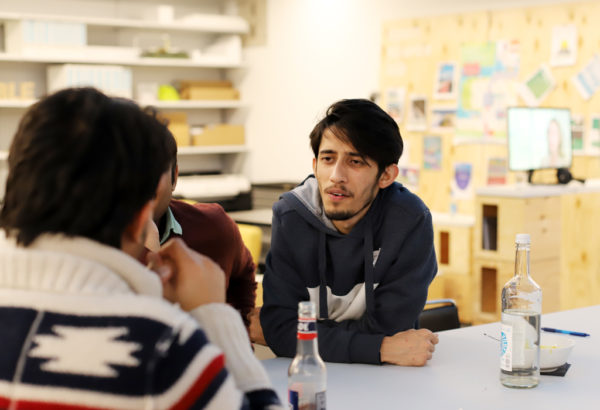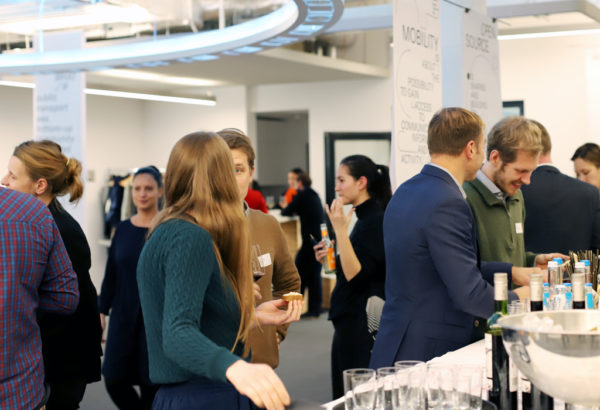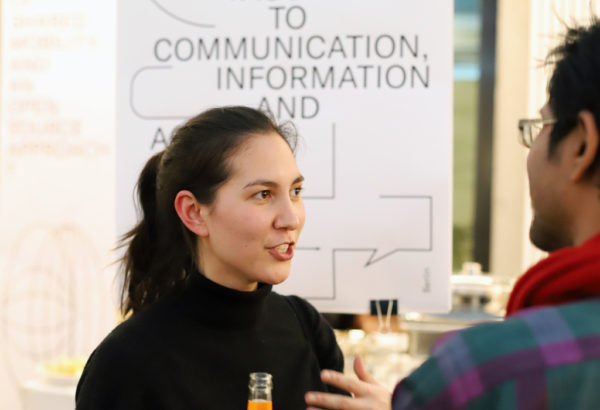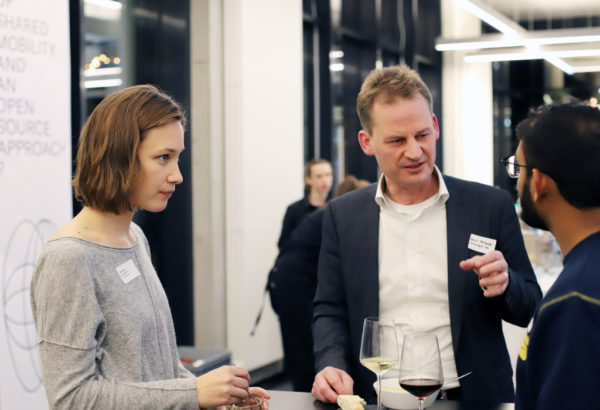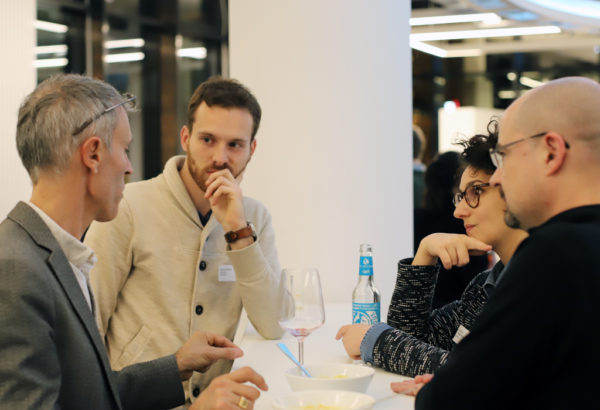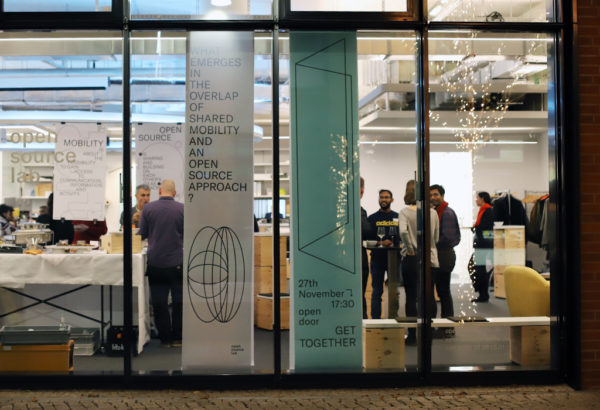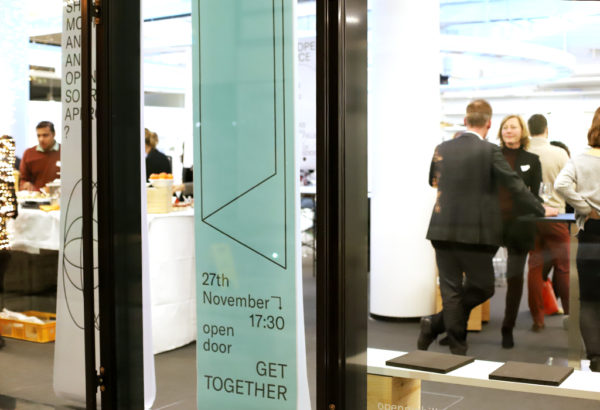Participants:
- Dr. Julian Blessin, TIER Mobility
- Dr. Michelle Christensen, Weizenbaum Institute
- Prof. Dr. Felix Creutzig, Mercator Research Institute on Global Commons and Climate Change
- Bernhard Fehr, DLR Institute of Transportation Systems
- Prof. Dr. Gesche Joost, German Research Center for Artificial Intelligence (DFKI)
- Martin Koll, Open Knowledge Foundation
- Max Kortlander, Waag
- Ralf Pfitzner, Volkswagen AG
- Gabriel Plassat, FabMob – La Fabrique des Mobilités
- Prof. Dr. Gerhard Prätorius, Volkswagen AG
- Dr. Stefan Schaffer, German Research Center for Artificial Intelligence (DFKI)
- Michael Sommer, Sustainability Council VW /inter alias Confederation of German Trade Unions (DGB)
Meet the Panelists
The discussion started off with the participants personal vision on shared mobility.
Prof. Dr. Gerhard Prätorius’ vision is sustainable, emission-free and focused on access. He wants to raise the question of how to make use of economic tools in this context.
Prof. Dr. Creutziger’s interest in the topic lies in the climate change and digitation side. He would like to see a different framing for mobility in order to allow everyone to have access. At the same time, there is the need to start regulation of technology and data now and think ahead – a hyper control scenario similar to the current Chinese model is upon us.
Mr. Kortlander’s vision on shared mobility entails technology that is more open, fair and inclusive. It involves all actors as a bottom-up solution. For him, mobility also means gaining access to information on an equal basis.
Mr. Sommer sees mobility as one of the most important factors of being part of a society. He points out that everybody should be able to be mobile in every part of their lives. His lifelong focus on the topic of decent work draws him to the interconnectedness of mobility and work and the question of how people will work in the future.
Prof. Dr. Joost would like to look back 20 years from and to see how much changed and traffic jams becoming history. Just like smoking in movie theaters and restaurants has been phased out of public life through regulation, the polluting and congested mobility landscape should see a complete overhaul. She wants to discuss what a participatory approach for this undertaking would look like and how accessibility for everyone can be ensured.
Dr. Blessin realized that mobility behavior can be changed when he launched the e-scooter sharing venture COUP some years ago. He stresses the importance of sufficient supply to become relevant in terms of shared mobility.
Dr. Schaffer is interested in the last mile in urban mobility and the concept of swarms, specifically bike swarms in terms of shared mobility. Here, he says, open-source software is crucial.
Mr. Fehr stresses that the central planning element is still the human scale. In the end, shared mobility solutions should fit people’s life and needs. These solutions are to enable people to decide if they want to commute or not and keep rural areas alive. Here, bottom-up solutions are as important as an integrated view of the system.
Mr. Koll points out that mobility is always shared since we live in a shared space. Space is limited so we are experiencing conflict over it. He thinks it is of great importance that companies like VW create open-source code for a more open transport system that can integrate all kinds of vehicles and publicly controlled solutions.
Dr. Christensen is interested in shared mobility in a global perspective. Mobility should create access from rural areas to megacities. Future shared mobility should also be inclusive so that no group is left out of planning and take into account security aspects in terms of gender. She sees the potential of innovation through the current maker culture.
Mr. Pfitzner’s vision of shared mobility is affordable, accessible, efficient, clean, safe and inclusive. He states that mobility is a basic need but points to rebound effects of shared mobility as it has not resulted in fewer car owners so far. Relating to the bike sharing market he urges that there is a need for an organizational entity for shared mobility to work.
Mr. Plassat sees a completely new concept of shared mobility by creating an ecosystem of open-source data, software, and hardware. This system should not be overrun by companies like Uber or Google but should create new mobility leaders. Mr. Plassat stresses the importance of an open-source approach to our cities.
The expert discussion on what Open Source Shared Mobility may hold for the future of mobility was an inspiring round with diverse perspectives. We would like to recap the main points which we are taking home from this talk:
Data is Key – And Controversial
The first topic that arose after the introduction was data. The need to change the way we think about and use data was stated by FabMob initiator Gabriel Plassat and extended by Prof. Joost proposing a cooperative of citizens – or a commons platform foundation as Prof. Creutziger suggests – which manages mobility datasets. One could then decide to allow access to this data or make data donations to science or city planning. But before that a cultural shift is necessary – people will have to be motivated to see data as something positive and understand its value in changing society to the better. Here common doubts and concerns come in: currently, we do not know which kind of data is stored where and what it makes us being just a data set. There is a difference between private and personalized data, and there will be the need to differentiate between data that is open and data that must not be open. Mr. Koll of OK Lab Potsdam sees the importance in creating working examples for open data in mobility and urges companies like VW that have the ability and infrastructure to establish such ecosystems. Prof. Prätorius of VW throws in the economic perspective on that and asks: Who will pay the expenses for making data available?
A Change of Mobility Behavior Needs Clear Targets
The next milestone in our discussion was the unraveling of changing behaviors in the mobility realm. It was agreed that first, we need clear goals on what needs to be achieved only then can we establish regulations and benefits for certain solutions and schemes. Prof. Creutziger points out in this context that one tends to be fascinated by new technology and wants to see what can be done with it while forgetting the objectives. In the major objectives of the reduction of CO2 emission and participation, technology has a high potential to help but it is not needed to state the goals. Apps can play a part in changing a community or individuals, but examples have shown that unless users see a real value (either financially or socially) in their behavior change nothing is going to remain changed. And as Mr. Fehr of DLR states, reducing CO2 emission by 20% is still too abstract for most. What could help here are experiments which then translate into habits and become common sense. But also with successful experiments, the system will not do without constraints and rewards.
Standards, Simulations, and Visualizations as a Means to Communicate in Political Contexts
Prof. Dr. Joost suggests that simulations like those of bike lanes’ ability to reduce the amount of CO2 emissions need to get more coverage and could very well be used as a means to communicate goals in a political context. Due to the fact that there is little communication between the different actors in the field of mobility, the Open Source Lab could be a place for experimental spaces with focused target groups. Mr. Koll adds that while there are over 400 transport networks in Germany, there are only three respective software companies in the domain, a source of worry for him and all open-source visions ahead.
A Wrap-Up of Thoughts and Arguments
Mr. Plassat suggests to start small and find software and hardware that is useful today in order for it to grow larger. Mrs. Christensen concludes five main points: the aggregation of infrastructure and the question of what we already have, inclusivity, a reward system with concrete goals and an account where all the mobility data is stored. Prof. Dr. Joost mentions creating standards on an open-source basis, defining clear objectives, introducing the Sustainable Development Goals on a city level and linking brother and sister institutions to work on a common agenda. Dr. Blessin concludes that even though there are a lot of different opinions, this discussion shares a common vision.
The event was moderated and documented by the Open Source Lab Team (Julia Ebert, Dr. Susanne Ritzmann, David Borgwardt, Emilia Knabe, Olya Bazilevicz)
Check out FabMob’s documentation of the event here.
See the Tweets of the event on Twitter @open_source_lab
Find the presentations of our guests below:
Gesche Joost: Introducing the Open Source Lab
Gabriel Plassat: FabMob – La Fabrique des Mobilités
Max Kortlander: Waag Society
